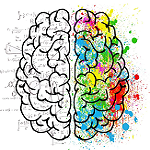16.9: Chi-Square Exercises
- Page ID
- 22180
-
Compute the expected frequencies for the following contingency table:
Table \(\PageIndex{1}\)- Contingency Table Category A Category B Category C 22 38 Category D 16 14 - Answer
-
Table \(\PageIndex{2}\)- Contingency Table with Calculations Expected Category A Category B Total Category C \(\frac{(60 \times 38)} {90}=25.33\) \(\frac{(60 \times 52)}{90}=34.67\) \(\sum_{Row C} = 60\) Category D \(\frac{(30 \times 38)}{90}=12.67\) \(\frac{(30 \times 52)}{90}=17.33\) \(\sum_{Row D} =30\) Total \(\sum_{Column A} =38\) \(\sum_{Column B} =52\) \(\sum =90\)
Here are some scenarios to practice the full process:
You hear a lot of people claim that The Empire Strikes Back is the best movie in the original Star Wars trilogy, and you decide to collect some data to demonstrate this empirically. You ask 48 people which of the original movies they liked best; 8 said A New Hope was their favorite, 23 said The Empire Strikes Back was their favorite, and 17 said Return of the Jedi was their favorite. Perform a chi-square test on these data at the .05 level of significance.
- Answer
-
Step 1:
- Research Hypothesis: "There is a pattern of relationship such that more people will prefer The Empire Strikes Back than the other two movies.
- Null Hypothesis: “There is no pattern of relationship in preference for one movie,” meaning that about the same amount of people will like each movie.
Step 2: 3 categories (columns) gives \(df = 2\), \(\chi_{\text {crit }}^{2}=5.991\).
Step 3: Based on the given frequencies:
Table \(\PageIndex{3}\)- Contingency Table New Hope Empire Jedi Total Observed 8 23 17 48 Expected 16 16 16 N/A \(\chi^{2}=7.13\).
Step 4: Based on our sample of 48 people, there is a statistically significant difference in the proportion of people who prefer one Star Wars movie over the others, \(\chi^{2}(2)=7.13\), \(p < .05\). It does appear that more people like Empire than the other two movies. Which is just silly; the Ewoks were great!
A university administrator wants to know if there is a difference in proportions of students who go on to grad school across different majors. Use the data below to test whether there is a relation between college major and going to grad school.
| Observed | Psychology | Business | Math |
|---|---|---|---|
| Graduate School | 32 | 8 | 36 |
| No Graduate School | 15 | 41 | 12 |
- Answer
-
Step 1:
- Research Hypothesis: There is a pattern of relationship such that fewer Business majors go to graduate school than other majors.
- Null Hypothesis: There is no pattern of relationship between major and going to graduate school.
Step 2: \(df = 2\), \(\chi_{\text {crit }}^{2}=5.991\).
Step 3: Based on the given frequencies:
Table \(\PageIndex{6}\)- Expected Values of Graduate School by Major Expected Psychology Business Math Graduate School 24.81 25.86 25.33 No Graduate School 22.19 23.14 22.67 \(\chi^{2}=2.09+12.34+4.49+2.33+13.79+5.02=40.05\).
Step 4: Based on our data, there is a statistically significant relation between college major and going to grad school, \(\chi^{2}(2)=40.05, p<.05; it does appear that fewer Business majors go to graduate school than Psychology or Math majors.


